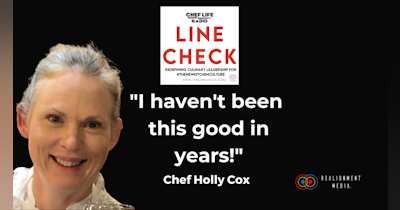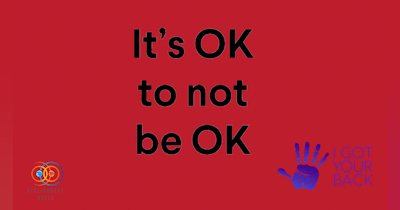How do you plan on sustaining your chef success?
Last month, I wrote a piece called Culinary Core Principles and Why They Matter, where I outlined the power and clarity that can be derived by discovering and embodying core principles. I included a paragraph titled “Personal Values,” where I wrote:
“…If you resonate with your company’s, organization’s, or kitchen’s Culinary Core Principles, that means you have personal core values as well. How many of us actually look at our personal lives in such a manner? How many of us have actually taken the time to write out our life’s mission and its corresponding core values? It’s an exercise worth doing in that there will be something to discover.
Maybe your family is the most important thing in your life, maybe it’s living off the grid or supporting energy-neutral enterprises. How do you, and with whom do you, spend your money? That’s usually a clear indication of what’s important to you. The next question would be, ‘How are you living those personal core values in your professional life?’ Maybe you don’t think it’s possible. Maybe being unhappy and unfulfilled in your professional life is just a well-practiced way of being.
Maybe there’s more that we can aspire to.”

I realized that there was much more to be said on the subject, but I wanted to outline some solid takeaways. Having core values is one thing, but what do you do with them? How does one embody them — where it matters — in one’s life? How can someone sustain chef success?
What would it look like to have a system by which you, or me, for that matter, can sustain success over time, without flaming out, crashing and burning, or ending up a statistic?
The results of a survey conducted by the website Chefs with Issues have revealed that out of 1,000 respondents, 7 out of every 10 hospitality professionals have had, or continue to have, mental health issues as defined by anxiety, depression, or addiction. (You can fill out the survey yourself here.)
Taking into account that the average in the mainstream population who identify with these conditions is 1 in 5, this should be a huge warning sign to any of us who claim this as our profession. Chances are if you’re not currently suffering from any of these debilitating conditions, then someone close, very close, to you is. Compound this by the fact that this is currently a taboo subject for conversation in our kitchens makes this a powder keg moment for our industry and our fraternity.
The longevity of your career will be determined by how good you get at mitigating and grounding the effects of the daily stresses that affect us all. A great illustration of how stress affects us — and how we ignore it at our peril — can be seen here.
How do you get your game face on?

How many times have you started your day by rolling out of bed, struggling through a shower, sorting through the pile of laundry for something to wear, and downing an energy drink on the way to the shop? You trust that once the ticket machine starts jumping that your adrenaline will start pumping, and you can make it through another shift. You got this, you can gut this out.
Or can you? For how long can you right side a hangover with Pedialyte and Pamprin just to get your head on straight enough to make out the prep list? How far are you willing to gamble with your health and your career?
I understand that some “kitchen dawgs” or “culinary badasses” might chafe at my suggestion, but we, the industry, your brothers and sisters need you, now and long into the future.
I’m not suggesting you go all “monastery” on me or become born again, or even go to AA or NA, (by all means, go if you think it would assist you) but I am suggesting that by creating a simple daily routine, you can start making healthy choices that will ensure that you are in the game for a long time.
Take time for your physical health
Almost every chef or culinarian I know has some sort of physical issue. I’ve had two back surgeries myself. It’s a clear and present danger with long hours, bent over tables or workstations using our bodies as only world-class athletes do. Like world-class athletes, we need to use every trick in the book to keep our bodies in tip-top condition.
Choose any type of exercise that you enjoy doing. If you don’t enjoy it, then don’t do it. It’s important that you look forward to this as a daily activity.
As a world-class athlete, start by stretching before your shift in order to prevent injuries. Here’s a great video for stretching and strengthening the back.

Switch it up! If you’re going to do high-intensity interval workouts, then do them a couple of days a week and do something else on your off days to move your body.
This is not about contemplation. This is about moving your body in ways that you wouldn’t in a normal day in the kitchen.
This is also not about building muscle. This is about releasing the tension and stress in your body, and mind. Physical exercise releases many different types of compounds in the brain, which induce euphoria and slows down the release of cortisol, the stress hormone.
Exercise has as much to do with your mind and your mental attitude as it does correct body posture or gaining lean muscle.
Become passionate about something else
This is critical. Find something else to focus on rather than what do you for a living. I say this with total respect for those whose lives are all about the culinary field. Do something else that you enjoy. For me, it’s writing and doing podcasts. It’s still about the industry, but it’s a totally different discipline.
I know a chef who prides himself on his woodworking abilities, and the kick-ass beer he brews. It could be motorcycle racing, vertical gardening, painting, throwing pottery. All these, and many other options, have the benefit of focusing elsewhere, allowing you to ground the stress that you and I hold in our bodies long after the shift has ended.
Maybe cheese is a fascination, or bees, or foraging for medicinal herbs. Take time to learn about it and then start doing it. Grow your passion for something else. You’ll soon discover that as a culinary professional, you are more grounded, calm, and clearheaded.
Be in service to something greater than you
With a broadened perspective about yourself, your craft, and the world in which you live comes a mature, professional outlook that reflects back that which is important to you. Now it’s time to be in service to that, understanding that being in service means to give of oneself and of one’s time to something larger than oneself. Maybe it’s the environment, maybe it’s your community or church. Become a social activist for populations at-risk, ex-felons who need an opportunity to prove themselves, or the 22 servicemen and women who will take their life today, and every day.
Who will you stand for?

Don’t do it because you’re against something. Stand for something that you believe in. The language that you use will define the manner in which you advocate, so make it a positive one.
Why would anyone do any of these things?
“Chef, I’m so busy, I don’t even have time for myself, let alone anyone else.”
I get that, and I sympathize, but I would respond with a question: “Whose life is this, and who gets to make the decision about what’s important enough to act on?”
You’ll always find the time for the important things in your life. Maybe the question to ask is, “What am I willing to give up to have time for the things that are important for me?”
For me, it’s time in the morning for silent reflection, some writing then off to work. In the afternoon, a short workout or soak in the hot tub between services. After work, it might be some work around the podcasts or writing in a gratitude journal. For me, it’s meant getting up at 5 a.m. in order to do what I love. It’s also meant going to bed between 9 – 10 p.m. so that I am rested and clear-minded. What did I give up?
Turns out, not much. What are you willing to give up in order to gain sustainable chef success?
Previously Published @
The post 3 Principles for Sustaining Chef Success appeared first on foodwerks inc.




